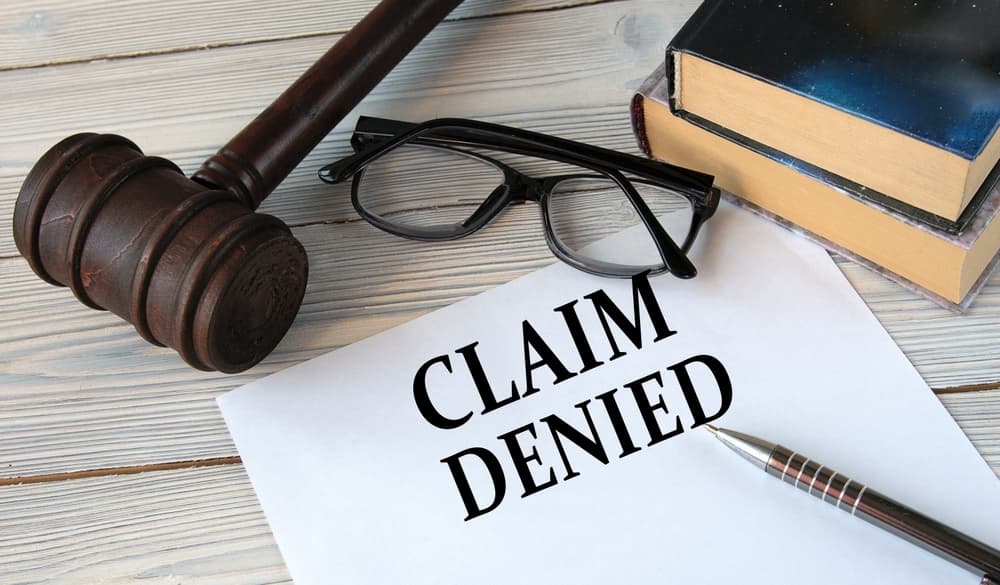- March 6, 2025

When you are recovering from injuries after a car accident, the last thing you want to worry about is the confusing maze of insurance requirements. But if you drive in Michigan, the state’s no-fault insurance laws are an important part of protecting your rights, ensuring that your medical bills are covered, and helping you return to a sense of normalcy as quickly as possible. Knowing what no-fault laws mean, how they affect your claim, and what types of benefits might be available can give you more peace of mind at a time when you need it most. Consulting a car accident lawyercan help you navigate these complexities and ensure you receive the compensation you deserve.
Contact us online, and let us safeguard your rights and future.
What Does It Mean That Michigan Is a “No-Fault” State?
In some states, determining who pays for damages after a car accident depends heavily on who was at fault. In these places, you may have to prove that another driver caused the accident before their insurance covers your medical bills, lost wages, and other losses. Michigan, on the other hand, operates under what is often called a “no-fault” insurance system.
In a no-fault system, every driver must carry a certain type of insurance that will cover their own medical expenses and related losses after a crash, no matter who caused the accident. This means that even if you were partly or fully responsible for the collision, your own insurance would still step in to cover many of your accident-related expenses. This approach is meant to reduce the time and hassle of proving fault for every single claim, allowing people who are hurt in an accident to receive timely payment for medical care, lost wages, and other necessary assistance.
The Basics of No-Fault Coverage in Michigan

For many years, Michigan’s no-fault laws were known for providing unlimited lifetime medical coverage for those injured in car accidents. However, changes introduced in 2019 and implemented starting in 2020 gave drivers the option to select different levels of personal injury protection. While the system still provides broad coverage, these new reforms may affect the amount of coverage available and how claims are handled.
When you purchase your auto insurance policy in Michigan, you choose a certain level of personal injury protection (PIP). PIP coverage is one of the core components of the state’s no-fault system. Your PIP benefits may cover your medical expenses, rehabilitation costs, attendant care, and other services related to your injuries. If you were severely injured and unable to work for a period of time, PIP may also cover a portion of your lost wages.
Michigan’s no-fault system generally requires that, after a car accident, you turn first to your own insurance company to cover these costs. However, you do have options if your injuries are severe and “threshold” injuries are met—meaning that your injuries result in serious impairment of a bodily function, permanent disfigurement, or wrongful death. In such situations, it may be possible to file a lawsuit against the at-fault driver’s insurance company for additional compensation related to pain and suffering, or for other losses not covered by PIP.
What Does No-Fault Insurance Cover?
PIP benefits, or first-party benefits, are designed to support you immediately after a crash, regardless of who caused it. Under Michigan law, PIP benefits can include:
- Medical Expenses: This includes hospital stays, surgeries, doctor visits, prescription medications, physical therapy, mental health services, and other necessary medical treatments. PIP benefits may also cover prosthetics, medical equipment, and ongoing care services if you need long-term assistance due to your injuries.
- Income Loss: If your injuries prevent you from working, you may be eligible for compensation for a portion of your lost wages for a limited period. This is intended to help you pay your bills and maintain financial stability until you’re able to return to work or reach a settlement for any long-term disability you may experience.
- Attendant Care: If you need help performing daily activities, such as bathing, dressing, cooking, or getting around, attendant care benefits may cover the cost of in-home care. This assistance can come from professional caregivers or, in some cases, family members who dedicate time and effort to help you manage your condition.
- Replacement Services: These are services that you would normally perform for yourself but now need to hire someone else to do, such as household chores, yard maintenance, laundry, or cleaning. If your injuries prevent you from handling these tasks, PIP coverage can help pay for someone else to take care of them.
- Medical Mileage: If you must travel to and from medical appointments or therapy sessions as a result of your injuries, PIP may cover your travel expenses. This could include reimbursement for mileage, parking, and tolls.
- Survivor’s Loss Benefits: In the unfortunate event that an accident leads to a loved one’s death, PIP benefits may include survivor’s loss benefits for family members. These benefits can help cover some of the financial losses and expenses that follow the loss of a family’s income provider.
Each no-fault insurance policy in Michigan can vary based on the choices made at the time of purchase, and not all levels of coverage are the same. This is why it’s crucial to review your policy and speak to an experienced legal professional if you have any questions. They can help you understand exactly what benefits are available to you and ensure that you pursue every avenue of compensation you deserve.
Filing a No-Fault Insurance Claim
If you’ve been in a Michigan car accident, the first step in accessing your no-fault benefits is to file a claim with your own insurance company. This generally involves:
- Reporting the Accident: Contact your insurance company as soon as possible after the accident, ideally within 24 hours, to let them know what happened. You’ll need to provide basic information about the date, time, location, and the parties involved.
- Filling Out the Application for No-Fault Benefits: Your insurer will likely require you to fill out a formal application for PIP benefits. This application asks for details about your injuries, medical care, and related expenses. It’s crucial to complete this application accurately and thoroughly, but avoid rushing through it. The language you use and the details you provide can influence your claim’s outcome.
- Providing Medical Documentation: You may need to provide medical records, bills, and other documentation that show the extent of your injuries and the treatment you’ve received. Keep copies of all documents related to your medical care, lost wages, and other expenses following the accident.
- Meeting Deadlines: There are strict time limits for filing a no-fault claim. In Michigan, you must submit your application for benefits to your insurance company within one year of the accident. Missing this deadline could result in losing your right to receive no-fault benefits. Additionally, each individual expense, such as a specific medical bill, must be submitted within one year of the date the expense was incurred.
Navigating these requirements can feel daunting, especially when you’re recovering from a traumatic event. If you’re unsure how to proceed or concerned about making a mistake, consider seeking the guidance of an experienced personal injury attorney who can help ensure that every detail is handled properly.
What If Your No-Fault Claim Is Denied or Reduced?

Unfortunately, it’s not uncommon for insurance companies to push back against no-fault claims. Insurers might question whether certain treatments are necessary, argue that you’ve fully recovered when you still need care or claim that your injuries aren’t as severe as you say they are. Sometimes, they may deny claims outright or try to settle quickly for far less than what you truly need.
If your no-fault claim is denied or reduced or your benefits are suddenly cut off, it can feel like a devastating setback. Already coping with physical and emotional pain, you should not have to fight with your insurance company to receive the benefits you paid for and deserve. If you find yourself in this position, it’s important to remember that you still have options:
- Review Your Policy and Documentation: Double-check the information you submitted to the insurance company. Did you miss any critical details? Are there other medical records you could provide?
- Seek a Second Opinion: If the insurance company disputes the necessity of a particular treatment or questions your ongoing need for care, obtaining a second medical opinion from a qualified healthcare provider could help support your case.
- Contact an Experienced Attorney: Working with a knowledgeable legal professional can make a significant difference. They can review your policy, gather the necessary evidence, and advocate on your behalf. Attorneys understand how insurance companies work and can help ensure you’re not taken advantage of during a vulnerable time.
When Can You File a Third-Party Lawsuit?
While Michigan’s no-fault laws generally direct you to seek compensation from your own insurance first, there are situations in which you can file a claim against another party. This is known as a third-party claim. Such claims typically come into play if you’ve suffered serious, life-altering injuries that go beyond what your own no-fault benefits cover.
To file a third-party claim in Michigan, you generally must show that your injuries meet the “threshold” requirement:
- Serious Impairment of Body Function: Your injury significantly affects your ability to lead your normal life. It might be a traumatic brain injury, spinal cord injury, severe fracture, or another type of harm that prevents you from returning to everyday activities as you once did.
- Permanent Serious Disfigurement: If the accident left you with severe scarring or disfigurement, you may be eligible to pursue compensation from the at-fault driver.
- Wrongful Death: If you lost a loved one in a car accident due to another driver’s negligence, you may be able to file a wrongful death claim against the responsible party.
Through a third-party claim, you may seek damages for pain and suffering, emotional distress, loss of companionship, and other non-economic harms that your no-fault insurance does not cover. If you are dealing with the loss of a family member, a wrongful death claim may also help you recover some financial stability by covering things like loss of financial support, loss of services, and funeral expenses.
These claims can be complicated because you must still show that the other party was at fault. Gathering evidence, working with accident reconstruction experts, and negotiating with opposing insurance companies can be challenging. This is another situation where having an attorney on your side can be indispensable. They can handle these complexities so that you can focus on healing and taking care of your family.
Why Legal Help Matters

Michigan’s no-fault insurance laws were intended to simplify the process of obtaining benefits after a car accident. In some ways, they do—especially in smaller, less complicated claims. But no system is perfect. The complexity of policy limits, recent changes in the law, and the possibility of disputes with insurance companies can make the process feel anything but simple.
A skilled attorney can provide several benefits, including:
- Clarifying Your Rights: An attorney can explain how Michigan’s no-fault laws apply to your unique situation. They’ll help you understand which benefits you’re entitled to, what deadlines you must meet, and what steps you should take next.
- Handling Communication: Dealing directly with insurance companies, medical providers, and billing departments can be stressful. An attorney can communicate on your behalf, ensuring that nothing is overlooked or miscommunicated.
- Gathering Evidence: If you need to prove that your injuries are serious or that another driver was at fault, having someone who knows how to collect and present evidence effectively is critical. Attorneys often work with medical experts, accident reconstructionists, and other professionals to build a strong case.
- Negotiating Fair Settlements: Insurance companies may offer you less than you truly need, hoping you’ll settle quickly. A knowledgeable attorney can push back, negotiating for the maximum amount of compensation you deserve so that you can fully recover and move on.
- Protecting Your Long-Term Interests: Accidents can result in long-term or permanent injuries. An attorney will consider not just your current medical costs, but also your future expenses and the impact on your career, family life, and personal well-being.
Moving Forward with Trusted Legal Support
You deserve a chance to heal, regain your strength, and move forward with your life. Michigan’s no-fault laws were designed to help injured people secure timely payment for their needs, but the reality of obtaining these benefits can feel less than straightforward. If you have questions, remember that it’s perfectly normal to seek help.
If you’d like the assistance of a caring, experienced legal team that understands Michigan’s no-fault laws and is committed to protecting your rights, you can turn to Goodman Acker P.C. With more than 150 years of combined experience and a dedication to honesty, ethics, and community involvement; our attorneys will work tirelessly on your behalf.
We’ll help you understand your options, gather the evidence you need, and fight aggressively for fair compensation. Don’t wait— contact us today at (248) 831-1507 or through our online form for a free consultation. We’re available 24/7 to guide you through this challenging time.
Contact us online, and let us safeguard your rights and future.

